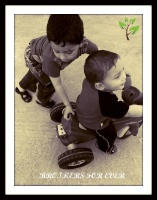raedgazo
مشارك مميز مع مرتبة الشرف


الاوسمة



عدد المساهمات : 1689
تاريخ التسجيل : 12/10/2010
 |  موضوع: About Drama موضوع: About Drama  الخميس مايو 19, 2011 2:21 am الخميس مايو 19, 2011 2:21 am | |
| This article is taken from Wikipedia, the free Encyclopedia
Drama is the specific mode of fiction represented in performance. The term comes froma Greek word meaning "action" (Classical Greek: δράμα,
dráma), which is derived from "to do" (Classical Greek: δράω,
dráō). The enactment of drama in theatre, performed by
actors on a stage before an audience, presupposes collaborative modes of
production and a collective form of reception. The structure of
dramatic texts, unlike other forms of literature, is directly influenced
by this collaborative production and collective reception
The two masks associated with drama represent the traditional generic
division between comedy and tragedy. They are symbols of the ancient
Greek Muses, Thalia and Melpomene. Thalia was the Muse of comedy (the
laughing face), while Melpomene was the Muse of tragedy (the weeping
face)
The use of "drama" in the narrow sense to designate a specific type of
play dates from the 19th century. Drama in this sense refers to a play
that is neither a comedy nor a tragedy--for example, Zola's Thérèse
Raquin (1873) or Chekhov's Ivanov (1887). It is this narrow sense that
the film and television industry and film studies adopted to describe
"drama" as a genre within their respective media. "Radio drama" has been
used in both senses--originally transmitted in a live performance, it
has also been used to describe the more high-brow and serious end of the
dramatic output of radio
Drama is often combined with music and dance: the drama in opera is sung
throughout; musicals include spoken dialogue and songs; and some forms
of drama have regular musical accompaniment (melodrama and Japanese Nō,
for example). In certain periods of history (the ancient Roman and
modern Romantic) dramas have been written to be read rather than
performed. In improvisation, the drama does not pre-exist the moment of
performance; performers devise a dramatic script spontaneously before an
audience
History of Western drama
Classical Athenian drama
Western drama originates in classical Greece. The theatrical culture of the
city-state of Athens produced three genres of drama: tragedy, comedy,
and the satyr play. Their origins remain obscure, though by the 5th
century BCE they were institutionalised in competitions held as part of
festivities celebrating the god Dionysus. Historians know the names of
many ancient Greek dramatists, not least Thespis, who is credited with
the innovation of an actor ("hypokrites") who speaks (rather than sings)
and impersonates a character (rather than speaking in his own person),
while interacting with the chorus and its leader ("coryphaeus"), who
were a traditional part of the performance of non-dramatic poetry
(dithyrambic, lyric and epic). Only a small fraction of the work of five
dramatists, however, has survived to this day: we have a small number
of complete texts by the tragedians Aeschylus, Sophocles and Euripides,
and the comic writers Aristophanes and, from the late 4th century,
Menander. Aeschylus' historical tragedy The Persians is the oldest
surviving drama, although when it won first prize at the City Dionysia
competition in 472 BCE, he had been writing plays for more than 25
years. The competition ("agon") for tragedies may have begun as early as
534 BCE; official records ("didaskaliai") begin from 501 BCE, when the
satyr play was introduced. Tragic dramatists were required to present a
tetralogy of plays (though the individual works were not necessarily
connected by story or theme), which usually consisted of three tragedies
and one satyr play (though exceptions were made, as with Euripides'
Alcestis in 438 BCE). Comedy was officially recognised with a prize in
the competition from 487-486 BCE. Five comic dramatists competed at the
City Dionysia (though during the Peloponnesian War this may have been
reduced to three), each offering a single comedy. Ancient Greek comedy
is traditionally divided between "old comedy" (5th century BCE), "middle
comedy" (4th century BCE) and "new comedy" (late 4th century to 2nd
BCE)
Medieval
In the Middle Ages, drama in the vernacular languages of Europe may have
emerged from religious enactments of the liturgy. Mystery plays were
presented on the porch of the cathedrals or by strolling players on
feast days. Miracle and mystery plays (such as Everyman) later evolved
into more elaborate forms of drama, such as was seen on the Elizabethan
stages
Elizabethan and Jacobean
One of the great flowerings of drama in England occurred in the 16th and
17th centuries. Many of these plays were written in verse, particularly
iambic pentameter. In addition to Shakespeare, such authors as
Christopher Marlowe, Thomas Middleton, and Ben Jonson were prominent
playwrights during this period. As in the medieval period, historical
plays celebrated the lives of past kings, enhancing the image of the
Tudor monarchy. Authors of this period drew some of their story lines
from Greek mythology and Roman mythology or from the plays of eminent
Roman playwrights such as Plautus and Terence | |
|
